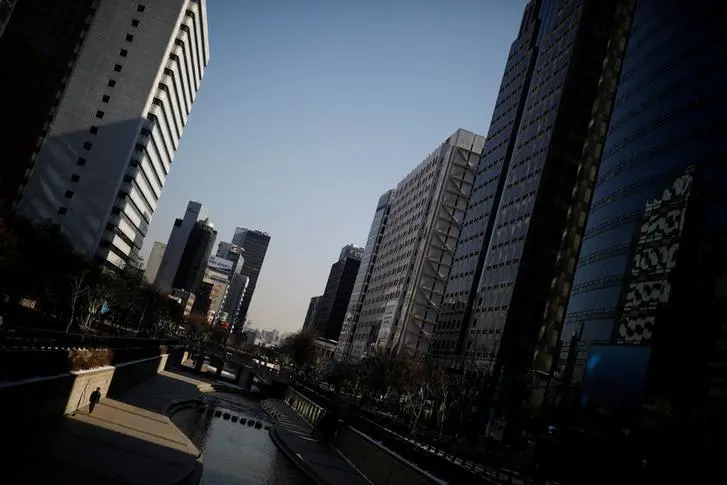PHOTO
South Korean labour unions are battling company managements to press an unusual demand: raising the age of retirement to give workers a few more wage-earning years before having to seek another job to supplement slim pensions.
The issue fuels a contest for jobs between older workers among one of the world's fastest-ageing populations, with a rate of poverty among its elderly of three times the OECD average, and young workforce entrants facing dwindling options.
"Having to move to low-quality jobs after retirement is perpetuating unstable labour for people in their 60s," one of the two largest umbrella unions, the Federation of Korean Trade Unions (FKTU), said in a statement.
With South Korea expected to become a "super-ageing" society in 2025, as more than a fifth of its population passes 65, demands to extend the retirement age are growing.
But detractors say the change would worsen job prospects for the young, and hobble companies from adapting to a changing environment.
"If the retirement age is simply extended by law, as the labour community insists, it can be a great barrier and despair for young people who want to find a job," the presidential Economic, Social and Labor Council said this month.
The labour union at steelmaker POSCO, a unit of POSCO Holdings, plans to hold a vote on whether to call a strike, a union official said on Tuesday, after failing to strike a deal with management over wages.
Raising the retirement age by a year from 60 was one of the demands made by the 11,000-member union in the first failed wage negotiation in the 55 years since the steelmaker was founded. POSCO has called for the union to return to the talks.
Set to unveil plans for possible strike action on Wednesday is the 44,000-strong Hyundai Motor union, which is also demanding extension of the retirement age, this time to 64 from 60.
The moves come after the FKTU umbrella union launched a petition this year for parliament to gradually raise the legal retirement age to 65.
While South Korean law sets a retirement age of 60 or higher, most companies have fixed it at 60, the lowest possible.
But the National Pension Service (NPS) only begins paying out at age 63 to 65, depending on dates of birth, and the pension only replaces a fraction of wages.
South Koreans aged 65 or older form 18.4% of the population, up from 11.9% in 2013 and are projected to exceed 20% in 2025 and 40% in 2050, Statistics Korea says.
The NPS, struggling to support the fast-ageing population, is expected to see its wage replacement rate fall to 40% in 2028 from 70% in 1998. That compares with a threshold of about 60 to 70% in advanced European economies.
The average rate of poverty among the elderly stood at 13.1% in nations of the Organisation for Economic Co-operation and Development by 2018, compared to 43.4% for South Korea.
Although the NPS is the world's third-largest pension fund, managing 974 trillion won ($737 billion) by May, it is expected to run out of cash by 2055.
And there is rising demand for the jobs the union members want to retain.
When Hyundai Motor began to recruit 400 factory workers in March, its first such exercise in a decade, high traffic volume paralysed its recruitment website on the first day.
Media estimated applicants outnumbered the jobs on offer by hundreds of times, although Hyundai Motor declined to confirm the figure.
Last year Kia Corp drew nearly 50,000 applicants against vacancies for 100 technicians, the Dong-A Ilbo newspaper said.
"We need to raise the retirement age to ensure employment stability and appropriate wages for the elderly ... to prevent poverty in old age," the labour federation, FKTU, told parliament in its petition. ($1=1,321.0400 won) (Reporting by Joyce Lee; Additional reporting by Ju-min Park; Editing by Clarence Fernandez)





















